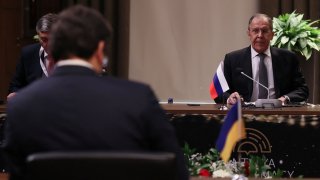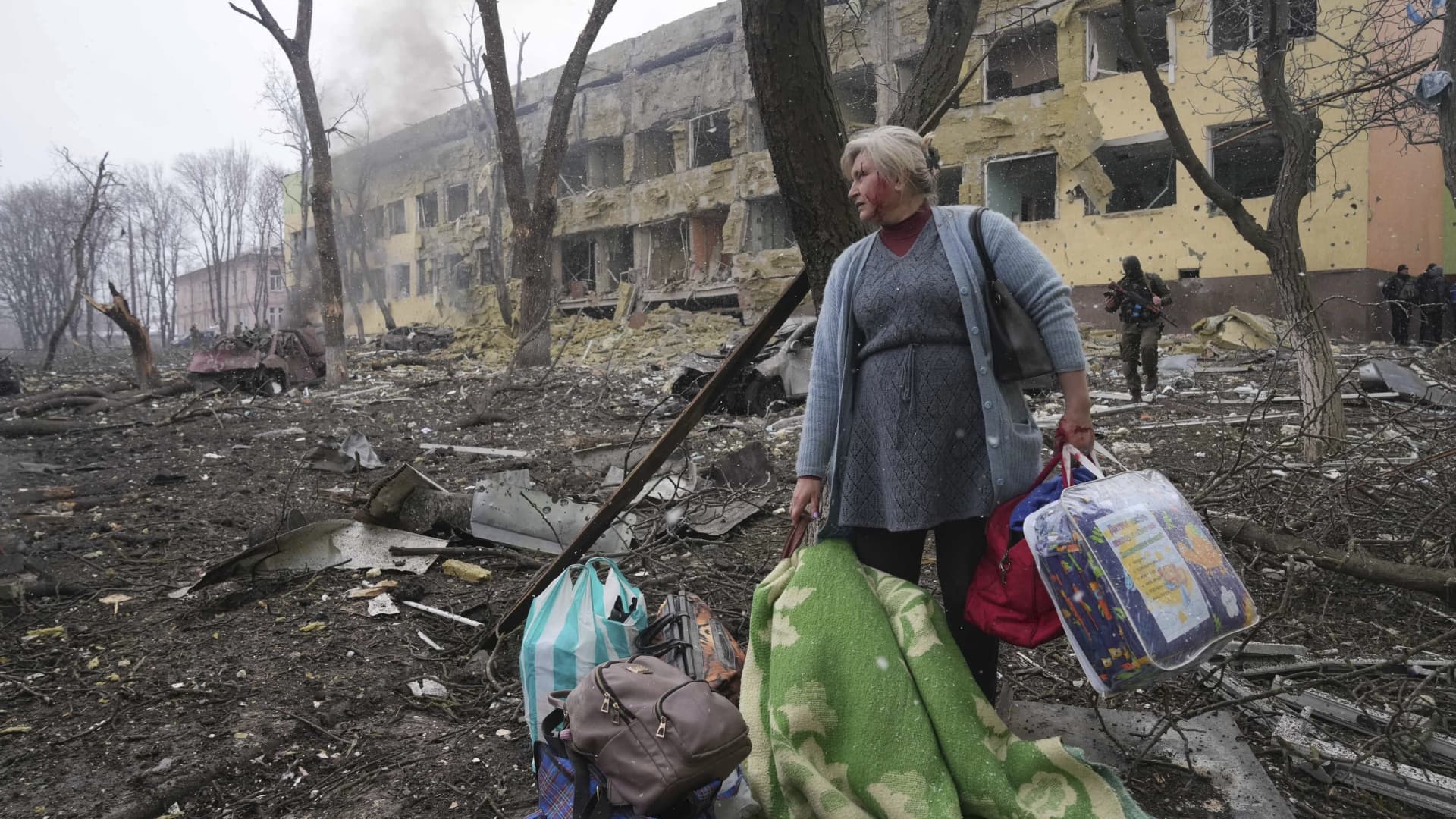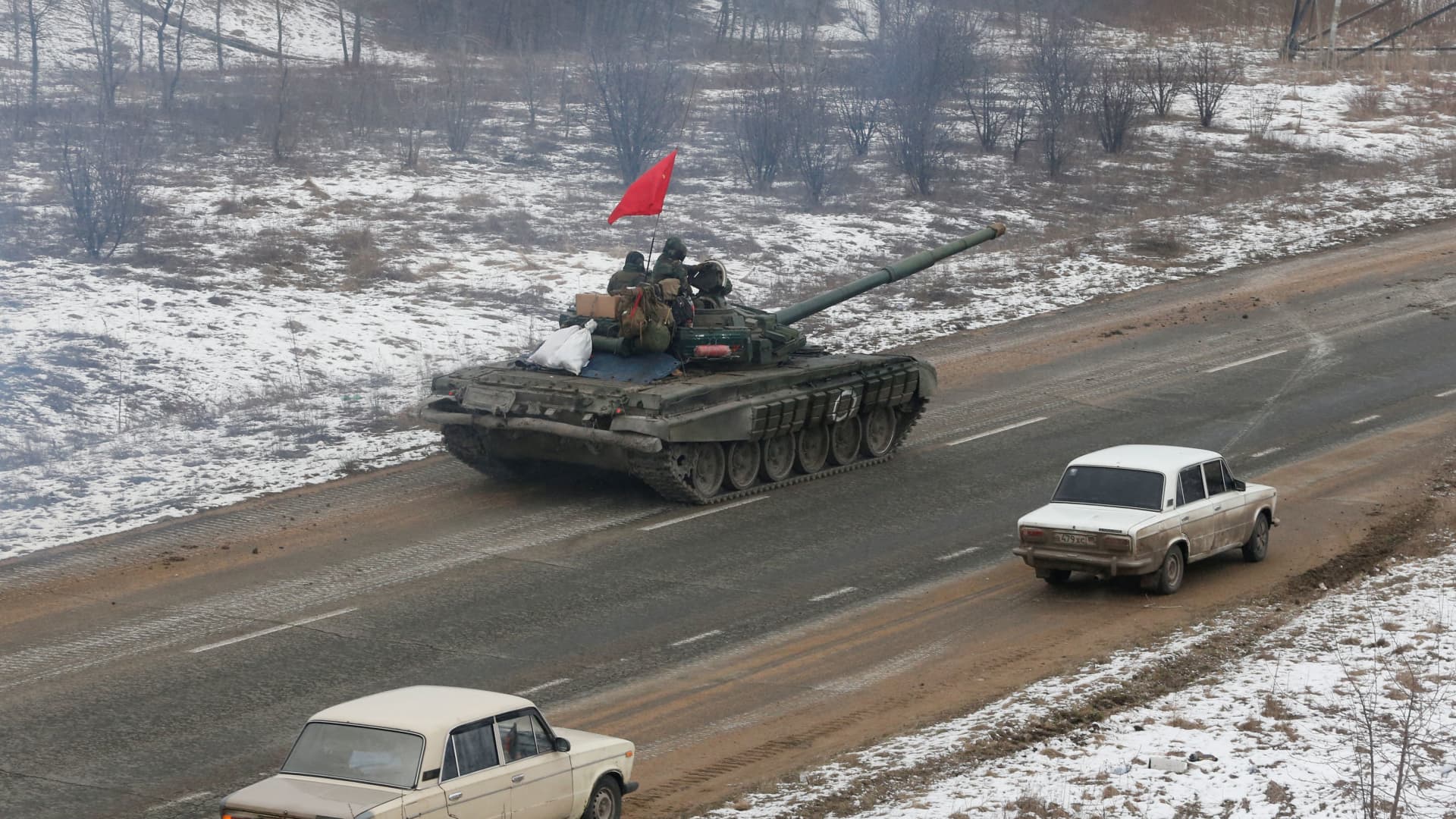
- Russia and Ukraine's foreign ministers met for talks in Turkey on Thursday.
- The discussions, which lasted less than two hours, failed to achieve a cease-fire or an agreement over safe passage for civilians fleeing the besieged port city of Mariupol.
- Russia invaded its neighbor Ukraine two weeks ago and fighting continues to rage across the country.
Talks between Russia and Ukraine's foreign ministers in Turkey on Thursday appear to have ended in failure, with no progress made on establishing a cease-fire or safe passage for civilians trying to flee the besieged city of Mariupol.
The discussions, between Russia's foreign minister, Sergey Lavrov, and his Ukrainian counterpart Dmytro Kuleba, lasted just 1½ hours.
When he emerged, Kuleba told a news conference that the talks had been "both easy and difficult."
Get top local stories in Southern California delivered to you every morning. >Sign up for NBC LA's News Headlines newsletter.
"Easy because Minister Lavrov basically followed his traditional narratives about Ukraine, but difficult because I did my best to find a diplomatic solution to the humanitarian tragedy unfolding on the battleground and in the besieged cities," he said.
No progress had been made on Ukraine's proposal for a 24-hour cease-fire, Kuleba said, nor on the establishment of a humanitarian corridor to and from Mariupol, both for citizens to flee the city, and for humanitarian aid to enter it.
Read more
Ukraine foreign minister says Russian officials 'live in their own reality' after talks fail
Money Report
The minister expressed his dismay that his Russian counterpart had not been in a position to authorize any kind of agreement on a cease-fire, saying "it seems there are other decision-makers on this matter, in Russia." Indeed, in a separate news conference, Lavrov said that "no one here was discussing a cease-fire."
Hospital attack
The talks came as fighting continues to rage across Ukraine, with the country's president, Volodymyr Zelenskyy, accusing Russia once again of war crimes after an attack on a children's hospital in Mariupol.

CNBC's Hadley Gamble asked Lavrov how Russia could justify the attack, which Ukrainian authorities said had killed three people, including a child.
Lavrov said it was "not the first time we've seen shouting in response to so-called atrocities," repeating a Russian line that the hospital had already been captured by Ukrainian "ultra radicals." He presented no evidence for this claim.
He also said that pregnant women had been taken away from the hospital days ago, despite video evidence to the contrary which showed pregnant women being carried from the hospital following the missile strike.
U.N. Secretary-General Antonio Guterres has condemned the attack, calling it "horrific" in a Twitter post.
The Russian foreign minister did not elaborate on how he knew supposed details about the occupants of a hospital within a city that is being held by Ukrainian forces. Its Russian besiegers are attacking it from a distance with artillery.
CNBC's Gamble also pressed Lavrov on how Russia could justify the invasion to its citizens, given it has brought the Russian economy to the brink of a default.
"We will take care of that ourselves, our president is dealing with this, our government is dealing with this," he said, without specifying how.
Invasion ongoing
Russia's full-scale invasion of its neighbor Ukraine began two weeks ago.
Among Russia's demands are legal assurances that Ukraine will never join NATO — and have so-called neutral status regarding the military alliance.
Ukraine has signaled that it is open to discussing Russia's demand of neutrality, and is ready for a diplomatic solution to the conflict. However, it has also said that it must be given security guarantees from its allies in the U.S. and NATO, and not just from Russia.

Moscow has also demanded that Ukraine acknowledges Crimea, which it annexed in 2014, as Russian territory, and recognizes the independence of the pro-Russian separatist republics of Donetsk and Lugansk in the Donbas region. For its part, Ukraine has said it is not willing to cede any of its territory to Russia.
Speaking ahead of the talks, Timothy Ash, senior emerging markets sovereign strategist at BlueBay Asset Management, told CNBC they were likely to be "very, very difficult, that's the reality,"
"The two sides are, in my mind, fairly far apart," he added.
Ash questioned whether the invasion was even about possible Ukrainian membership in NATO for Russia — which did not look likely in the medium term anyway — adding, "I really don't think it was."
"If you go back to 2014, Ukraine got invaded, Crimea annexed, when it [Ukraine] had no ambitions to join NATO and it's had neutral status and no military capability and it still got invaded," he told CNBC's "Squawk Box Europe." "In the end, Putin still wants Ukraine," he said.
There are a number of factors behind Putin's incursion into Ukraine, according to analysts and strategists, but most agree it is driven largely by his desire to reassert Russia's authority over former Soviet states and stop Ukraine's pivot toward the West.






